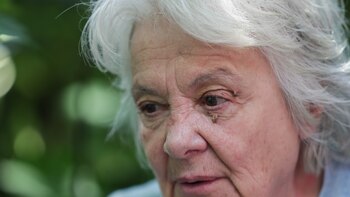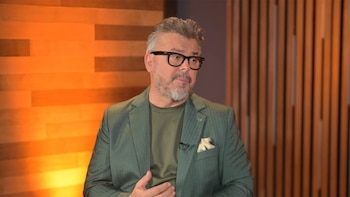WASHINGTON (AP) — President Joe Biden flatly declared Russia's Vladimir Putin a “war criminal” due to an ongoing attack on Ukraine where Russian troops bombed hospitals and maternity wards on Wednesday. However, declaring someone as a war criminal is not as simple as simply saying a words.There are definitions and procedures in place to determine who is subject to what punishment.
The White House refrained from applying the designation to Putin after saying that international investigations and decisions were necessary. After Biden used the term, Jen Psaki, the White House press secretary, said that the president “spoke with heart,” and she repeated that there was a process for formally realizing the decision.
However, at the popular level, this expression acquired a colloquial meaning in general terms of a brutal person.
“It is clear that Putin is a war criminal, but the president is politically speaking about it,” said David Crane, who worked in war crimes for decades and served as chief prosecutor of the UN Special Court in Sierra Leone. Charles Taylor, former President of Liberia.
An investigation into Putin's actions has already begun. After the UN Human Rights Council adopted a resolution to establish an investigation committee, the United States and 44 countries are working together to investigate possible violations and abuse.Another investigation is underway in the International Criminal Court, an independent body based in the Netherlands.
“We are at the beginning of the beginning.” On the day of the invasion, his group formed a special team to collect information about crimes related to war crimes. Crane is also developing a prototype of a formal prosecution against Putin. He predicted that an indictment against the President of Russia could occur within a year. However, this type of crime does not apply to the decree.
Let's take a look at how it all works.
Who are war criminals?
This term applies to anyone who violates a set of rules approved by the rulers of the world and known as war laws, which govern the way the state behaves at the time of the war.
They were modified and expanded in the last century according to the Geneva Convention at the end of World War II and a protocol added later.
These rules are intended to protect those who are not involved in the struggle, including civilians such as doctors and nurses, wounded soldiers, and prisoners of war, and those who cannot continue to fight. Treaties and protocols stipulate who can be attacked and with what kind of weapons can be attacked. Certain weapons, including chemicals and biological agents, are prohibited.
What are the specific crimes that make someone a war criminal?
The so-called “gross violations” of the Convention constituting war crimes include not only deliberate death, but also extensive destruction and allocation of property not justified by military necessity. Other war crimes include deliberate targets by civilians, unbalanced use of force, the use of a person as a human shield and the occupation of hostages.
The International Criminal Court also pursues crimes against humanity committed in the context of “widespread or systematic attacks on civilians”, which include murder, extermination, forced deportation, torture, rape, and sexual slavery.
The most likely way for Putin to be identified as a war criminal is through the widely recognized legal doctrine of command responsibility. If a commander hears about a crime and orders, knows, or is in a position not to do anything to prevent a crime, he can take legal responsibility.
What is the path to justice?
In general, there are four ways to investigate and determine war crimes, but each method has its limitations. One is through the International Criminal Court.
The second option may be for the UN to shift the work on the Investigative Committee to the Hybrid International Court of War Crimes in order to prosecute Putin.
The third is to create a tribunal or court to prosecute Putin by interested or affected groups or groups of countries, such as NATO, the European Union, and the United States.One example is the Nuremberg trial against the Nazi class after World War II ended.
Finally, some countries have their own laws that prosecute war crimes. For example, Germany is already investigating Putin. Although the United States does not have such laws, the Ministry of Justice has a special section that focuses mainly on acts such as international genocide, torture, recruitment of child soldiers and amputation of female genitals.
Where can Putin be prosecuted?
It is not clear: Russia does not recognize the jurisdiction of the International Criminal Court and does not transfer the suspect to a court based in The Hague, Netherlands.In addition, the United States does not recognize the authority of the court.Putin may be prosecuted in a consortium of countries chosen by the United Nations or countries of interest. But it will be difficult to take him.
Have other rulers been prosecuted in the past?
Yes. After World War II, various strata have been prosecuted in countries such as Bosnia, Cambodia and Rwanda after the courts of Nuremberg and Tokyo.
Former Yugoslav ruler Slobodan Milosevich was tried by the United Nations Tribunal in The Hague for a bloody conflict during the fall of Yugoslavia in the 1990s. He died in prison before the court reached a ruling. His Bosnian Serbian ally Radovan Karazic and Bosnian Serbian military leader Ratko Mladic were tried and both sentenced to life imprisonment.
Taylor of Liberia was sentenced to 50 years after being convicted of mitigating atrocities in neighboring Sierra Leone.Chad's former dictator Hissen Abre (Hissen Abre), who died last year, was the first former head of state to be convicted of crimes against humanity in an African court. He was sentenced to life imprisonment.
___
Coder reported in the Netherlands. Rhonda Schaffner, a journalism researcher in New York, contributed to this office.
Últimas Noticias
Debanhi Escobar: they secured the motel where she was found lifeless in a cistern

The oldest person in the world died at the age of 119

Macabre find in CDMX: they left a body bagged and tied in a taxi
The eagles of America will face Manchester City in a duel of legends. Here are the details

Why is it good to bring dogs out to know the world when they are puppies




